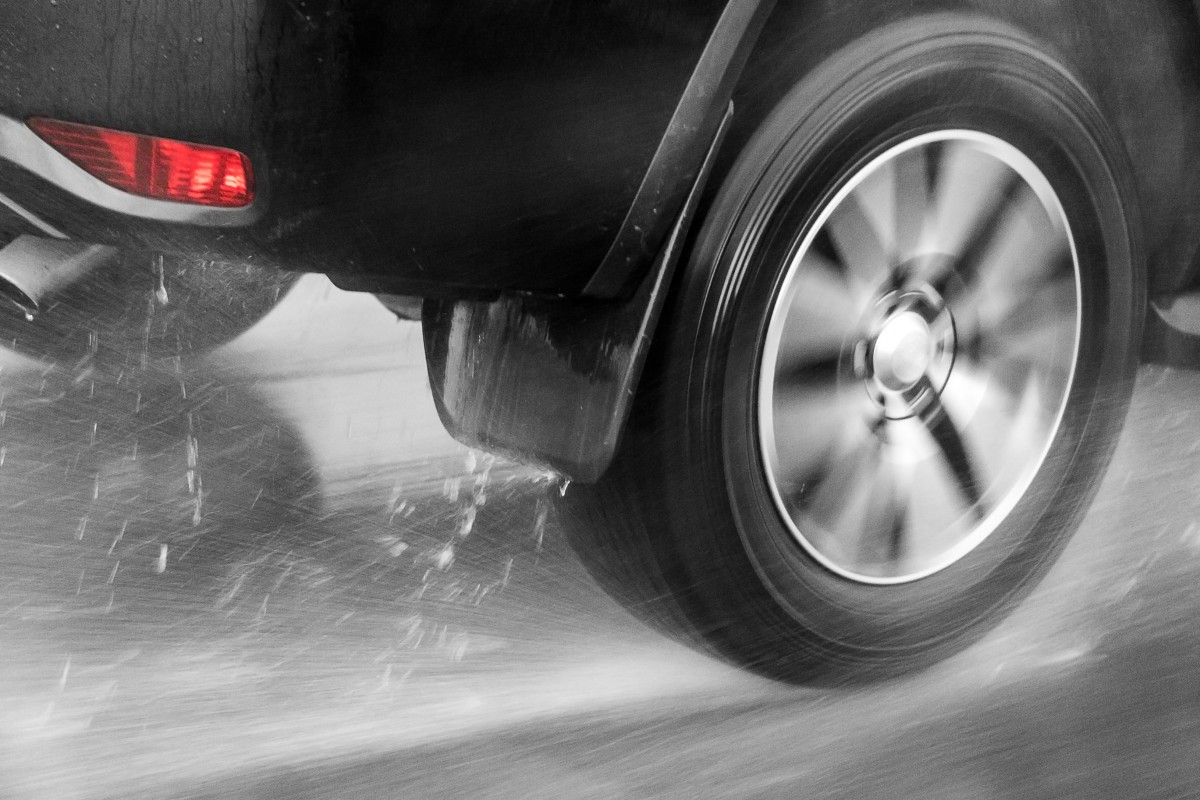Deck Your Car With The Right Treads For Wet, Wintery Roads

The driving safety of your family rests on four hand-sized pads--the amount of road surface covered by your vehicle’s tires.
According to Will Robbins, director of consumer product strategy at Bridgestone Americas, drivers should ask the following questions before they purchase their next set of treads:
- Are the tires designed for good-grip in the specific conditions where I live and drive (extreme cold and icy environments, mild weather, wet climates, hot zones, off-roading)?
- What kind of performance can I expect (road noise, driving speed, steering, braking, fuel economy)?
- What kind of longevity can I expect (mileage per tire)?
- How durable is the tire (ability to handle rugged roads, long distance travel)?
All-weather tires have a similar name to “all-season” tires but provide different applications for driving.
“‘All-weather’ tires are engineered for four-season performance,” Robbins said. “They are a great alternative for drivers who need more reliable performance on slick, winter roads than traditional ‘all-season’ tires,” Robbins said.
All-season tires are intended for the Mediterranean climates with cool, wet or warm days.
In contrast, rubber compounds and tread design found in all-weather tires makes them suitable for winter excursions. That includes places where drivers may encounter inclement weather conditions such as snow or heavy rain. An important note: Drivers who live in areas where temperatures routinely fall below freezing should consider true “winter” tires, designed specifically for ice and snow performance.
“Miles driven, road conditions, driving style, maintenance, and age all affect how long a tire will last,” Robbins said. “In many cases, limited treadwear warranties are available when purchasing all-season tires, and these warranties aren’t typically offered for winter or summer tires.”
Robbins highlighted the benefits of all-weather tires and provided some tips on getting the most out of your next tire investment:
- Check tire ratings for the kinds of weather you expect to encounter. Capabilities of all-weather tires vary greatly.
- All-weather tires are engineered to help reduce hydroplaning--sliding on wet roads--by design of the tread pattern.
- Unique tread patterns help all-weather tires adhere to wet, wintery roads. A note of caution: They are not considered true “winter tires” --for drivers who live in places where temperatures routinely fall below freezing.
- Daily commuters get better tire life from the design of all-weather tires compared to the softer rubber compounds found in winter tires.
- Extend the life of your tires by checking air pressure routinely, especially during colder months. Proper inflation also helps prevent uneven wear.
- Do not confuse the term “all-weather” with “all-season.” Tires labeled as “all season” generally are meant for Mediterranean--weather which ranges from cool rainy days to warm summer days.
- Ask your service advisor tire “wear” warranty. Tires with quality rubber compounds provide long life and offer better value over their lifetime.
“Ultimately, the safety, performance, and ride comfort provided by your tires depends on the weather conditions,” Robbins said. “It is essential drivers consider the differences between tire types according to where they live and drive.”